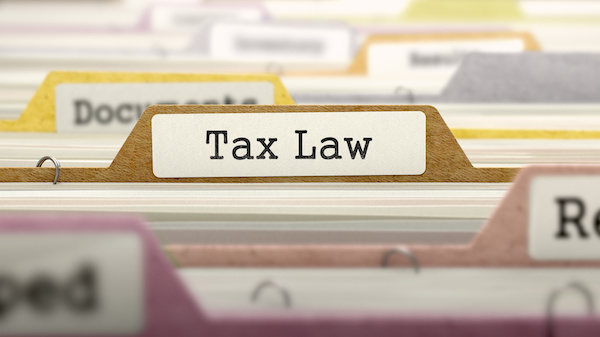Anytime you earn or receive income, that income is taxed through either withholding by your employer or through estimated tax payments. Depending on how much is withheld from your paycheck, your employment status, and what kind of income you receive, you may be required to pay estimated taxes. Knowing what kind of tax you need to pay and how much you need to pay is an important part of income tax planning. This is not just a way to keep yourself out of trouble with the IRS, but also is a way to set yourself up for future financial success. But what are these taxes are who has to pay them?
What are Estimated Taxes
Estimated tax is a form of paying taxes on income that is not withheld from your paycheck. If you receive any income through interest, dividends, alimony, self-employment income, capital gains, or rent, you may be subject to paying estimated taxes. These taxes are generally used to pay other, specific taxes like income tax, self-employment tax, and alternative minimum tax. If you don’t pay the amount of estimated tax you’re supposed to, it will show in your tax refund. Paying too low will force you to give the IRS some money after your tax return while if you pay too much, it will be added to your tax refund. If you’re late on your estimated tax payments, a penalty may be applied.
Who Has to Pay Estimated Taxes?
Estimated taxes are paid by those that don’t have taxes withheld from their paycheck or that have less taxes withheld from their paycheck than they owe. Sole proprietors, partners, and S corporation shareholders are usually required to pay estimated taxes if they owe $1,000 or more when they file their tax return. Corporations also may have to pay estimated taxes if they expect that they may owe $500 or more when they file their tax returns. The general rule of whether or not you have to pay estimated taxes is if your tax liability is $1,000 or more for the previous year and the taxes owed are not taken out of your subsequent paychecks, you’ll have to make estimated tax payments the following year.
Who Doesn’t Have to Pay Estimated Taxes?
Those that have regular employment where taxes are withheld from their paycheck have the ability to avoid making estimated tax payments by asking their employer to withhold extra money that will go toward paying those taxes owed. Typically, you know you don’t have to pay any estimated taxes if you had no tax liability for the prior year, were a citizen or resident of the United States for the previous year, and if your prior tax year covered a 12-month period.
When Do You Have to Make Estimated Tax Payments?
The estimated tax year is divided into four separate periods. The first period lasts from January to March, the second period from April to May, the third period from June to August, and the fourth period from September to December. Each period has a due date that arrives during the middle of the following month. If the amount of tax you owe is not paid by the time of the due date, you may be charged a penalty, even if you are due a refund when your tax return is filed. The best way to avoid such penalties is to ensure that your estimated tax is correct.
If, for any reason, the appropriate amount of tax you owe is not withheld from your paycheck, you may owe estimated taxes. In the event that you owe these taxes, there are two options in which you can pay them. One is that you can have additional money taken out of your paycheck to pay off those taxes. The other is that you can pay those taxes directly. Either way, it’s important to make sure that you correctly calculate the taxes as paying less than the appropriate amount by the due date can result in penalties. While this quick guide will give you a starting point if you owe estimated taxes, the professionals at France Law Firm can help you sort your income tax situation including what taxes you have to pay so you don’t hear from the IRS.






















